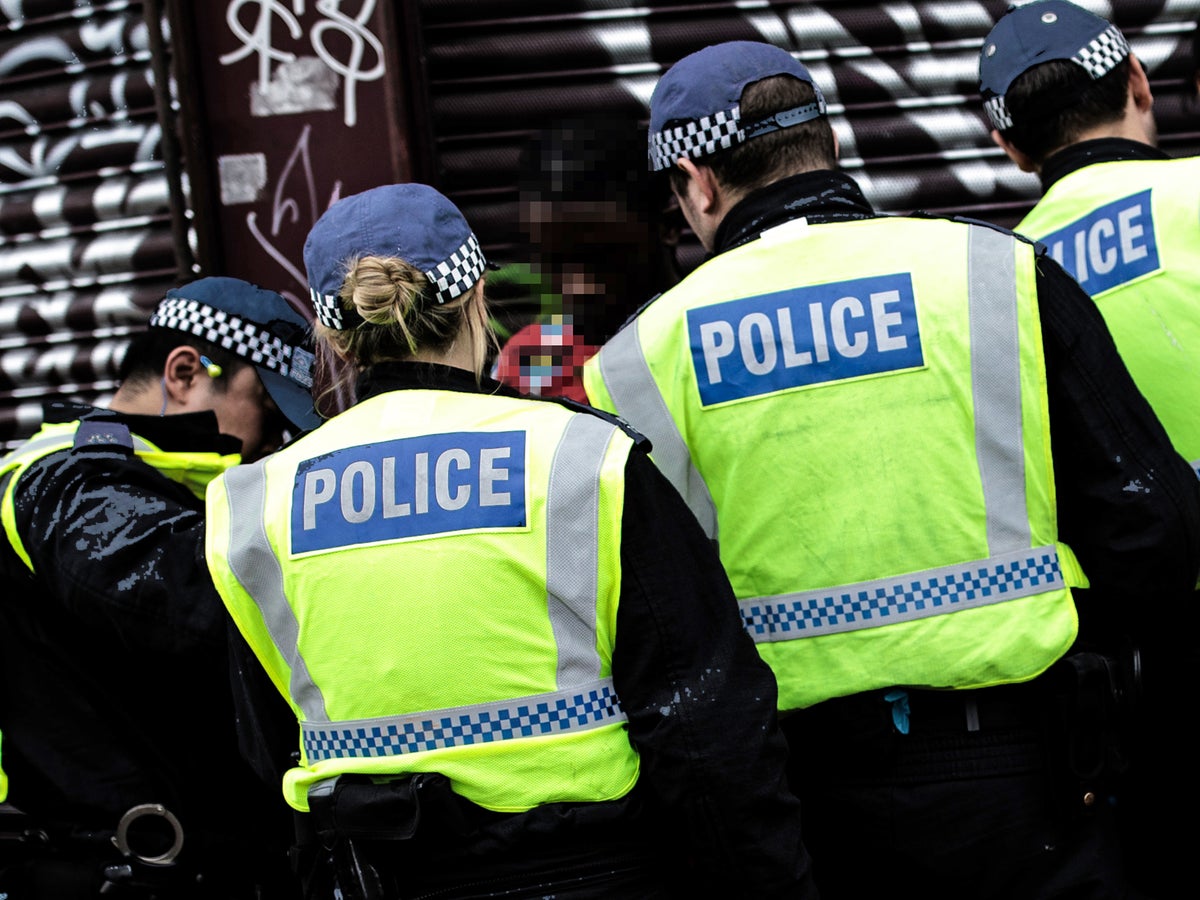
The Metropolitan Police is trialling a “new approach” to stop and search in which officers are trained to use “respectful language” and explain their actions, amid a crisis of public confidence.
The force’s first chief scientific officer is leading a pilot of the scheme in the parts of London worst affected by stabbings, after the damning Casey report said Black men were being disproportionately targeted “at the cost of legitimacy and trust”.
Professor Lawrence Sherman, an American criminologist who teaches at the University of Cambridge, said the “precision stop and search” programme aimed to transform the use of the tactic following decades of concern.
He told a press briefing that his team had ranked all 679 council wards by weapons-enabled violence, including stabbings and knife robberies.
“We are making it as legitimate as possible because it's focusing on places with very high risks of people getting stabbed or killed,” Prof Sherman said.
“What we are trying to do is proactive stop and search, done by people with specialist training, in a location selected with precision. We want to get weapons off the streets and ultimately have less harm, and fewer knife-enabled crimes.”
The academic is also leading the Met’s new data-led approach to targeting the 100 men deemed to pose the highest risk to women and children.
A model ranked suspects named in police reports by the prison time they would receive for the crimes, including rape and murder, so officers can focus on tracking down the most dangerous men on the loose.
Prof Sherman said the force, which has been in special measures for over a year following a series of scandals and horrific offences committed by its officers, is looking at data-led approaches to other areas including stop and search.
The pilot areas are six wards of Lambeth, south London, and three wards of Barking and Dagenham, east London. They cover parts of Stockwell, Vauxhall, Waterloo , Brixton, Camberwell, Barking town and the Thames View estate.
As part of the pilot, more than 100 officers have so far been trained to change the way they interact with people, and “young men in particular”.
Prof Sherman said it follows a model tested in numerous crime hotspots in America, which aimed to ensure officers are “neutral” and not racially biased when selecting people to search, and treat them with respect and explain their actions through a “trustworthy motive”.
“The most important part is to say why you’re doing it, to say ‘we are doing stop and search here to protect people like you to keep you from getting stabbed, [and] to keep your neighbours and friends from getting stabbed’,” he said.
Professor Lawrence Sherman is the Metropolitan Police’s chief scientific officer— (Met Police )
“They are doing something that nobody's going to be overjoyed about, but we want to try to rebuild a relationship with the person.”
Officers are also being instructed to “use respectful language”, for example by asking people how they want to be addressed, and not raising their voice.
The interactions will be recorded on body-worn cameras and reviewed as part of the pilot, which comes after a damning inquiry triggered by Sarah Everard’s murder called for a “fundamental research” of stop and search in London.
Baroness Casey’s report, released in March, said research found that while 77 per cent of Black adults supported stop and search for weapons, most people who had experienced it felt the police had not communicated with them properly and were left “traumatised and humiliated”.
But Suella Braverman called for police to ramp up stop and search in June, and to arrest people for “unlawful obstruction” when necessary.
In a letter to all chief constables in England and Wales, the home secretary added: “My first priority is to keep the public safe, and people who insist on carrying a weapon must know that there will be consequences.
“The police have my full support to ramp up the use of stop and search, wherever necessary, to prevent violence and save more lives.”
Official figures show that stops dropped by 8 per cent across England and Wales in 2021-22, and by more than a fifth in the Metropolitan Police, which fell from 268,384 to 210,347.
A Home Office report found that the areas with the most stop and searches in London were the most economically deprived, and that only 13 per cent resulted in an arrest.







